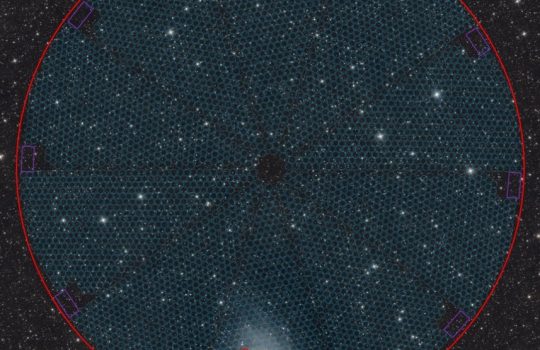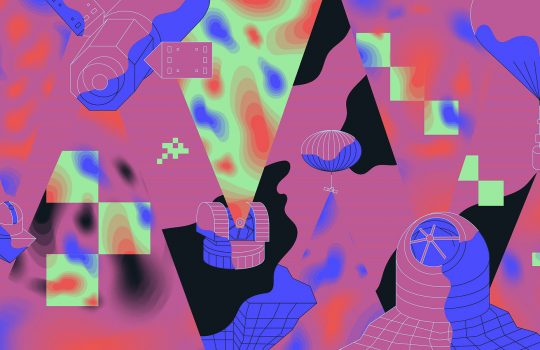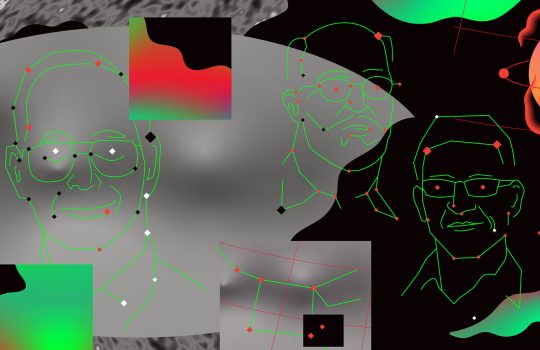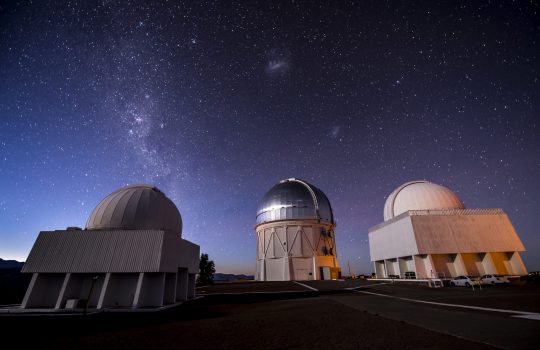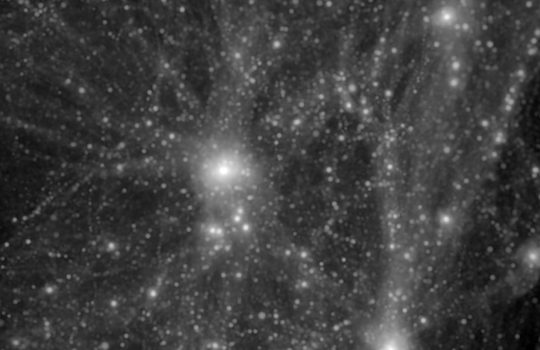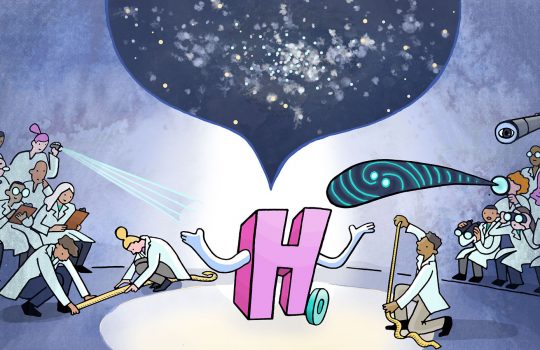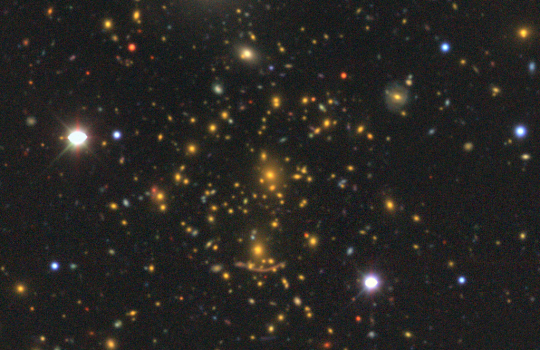DESI opens its 5,000 eyes to capture the colors of the cosmos
Berkeley Lab’s Dark Energy Spectroscopic Instrument aimed its robotic array of 5,000 fiber-optic “eyes” at the night sky Oct. 22 to capture the first images showing its unique view of galaxy light. It was the first test DESI with its nearly complete complement of components. Fermilab contributed key elements to DESI, including the corrector barrel, hexapod, cage and CCDs. Fermilab also provided the online databases used for data acquisition and the software for the instrument’s robotic positioners.

